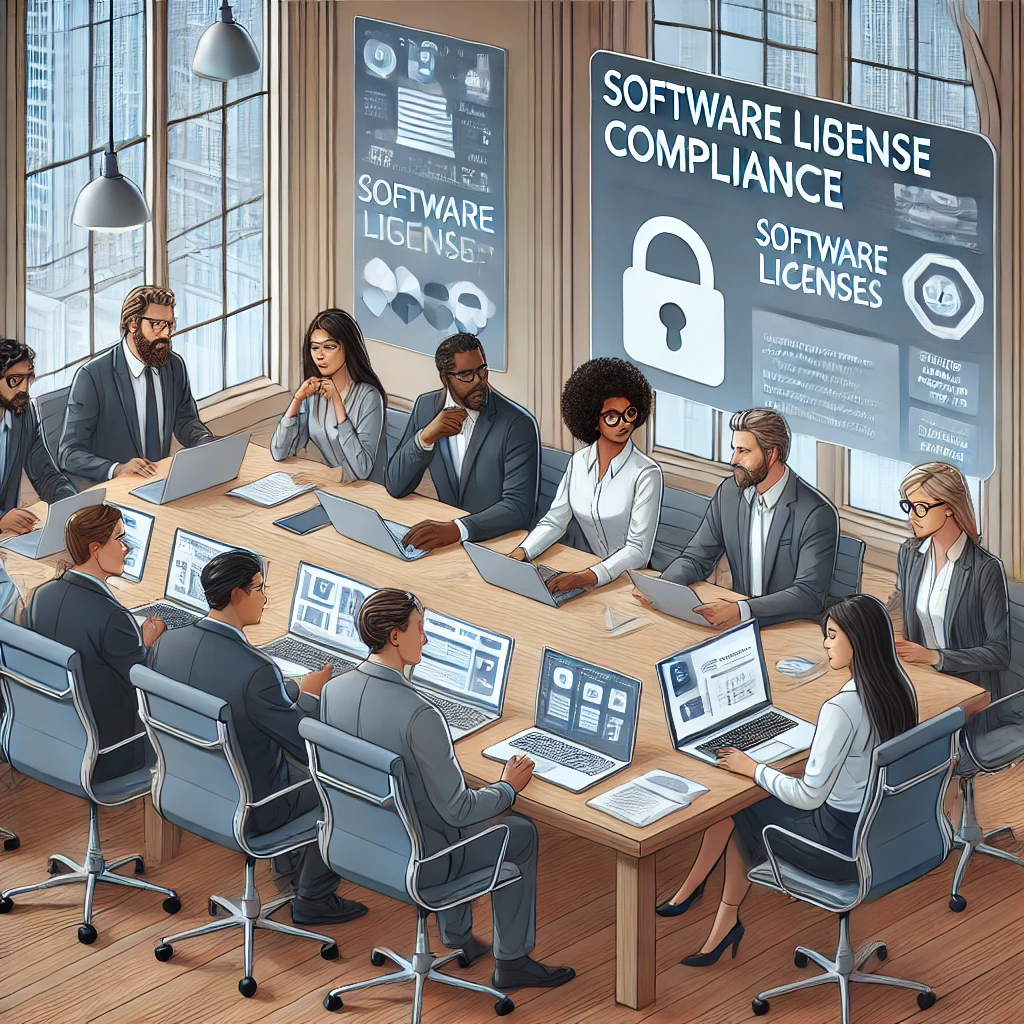Table of Contents
Introduction
In the digital age, software is a critical asset for businesses of all sizes, powering everything from basic operations to complex data analytics. With this reliance on digital tools comes the need for proper software license compliance. Failing to adhere to software licenses can result in hefty fines, legal issues, and damage to a company’s reputation. This blog post explores best practices for maintaining software license compliance and how businesses can avoid common pitfalls.
Understanding Software License Compliance
What is Software License Compliance?
Software license compliance refers to the adherence to the terms and conditions outlined in software license agreements. These agreements define how software can be used, including limitations on the number of users, installations, and specific use cases. Compliance ensures that a business is using software legally and ethically.
The Risks of Non-Compliance
Non-compliance can lead to serious consequences, including legal action from software providers, financial penalties, and loss of reputation. It can also result in security vulnerabilities if businesses use outdated or unsupported software to avoid compliance issues.
Best Practices for Ensuring Compliance
Conduct Regular Audits
Regular audits of software usage and license entitlements are crucial. These audits help identify any discrepancies between installed software and purchased licenses, allowing businesses to address issues proactively.
Implement a Software Asset Management Tool
Using a software asset management (SAM) tool can simplify the management of software licenses. SAM tools track software inventory and usage, ensuring that businesses stay compliant and optimize their software investments.
Train Your Team
Educating employees about the importance of software license compliance and the risks of non-compliance is essential. Regular training sessions can help prevent accidental violations, such as the installation of unauthorized software.
Establish Clear Policies and Procedures
Developing clear policies and procedures for acquiring and managing software licenses is vital. These guidelines should cover how to purchase software, who has installation rights, and the steps to follow when employees leave the company or change roles.
Common Challenges and Solutions
Managing Complex Licenses
Software licenses can be complex, with varying terms based on the type of usage, the number of users, and other factors. To manage this complexity, businesses should consider hiring a license management specialist or consultant who can provide expertise and guidance.
Dealing with Shadow IT
Shadow IT refers to software installed without IT department approval, which can lead to compliance risks. To combat this, companies should encourage employees to report their software needs so that they can be addressed safely and legally.
Upgrading and Transitioning Licenses
As businesses grow and technology evolves, the need to upgrade or change software licenses can arise. Planning these transitions carefully is crucial to avoid lapses in compliance.
FAQs
What is a software audit?
A software audit is a review of a company’s software installations and corresponding licenses to ensure that all software is used according to the licensing agreements.
How often should software audits be conducted?
The frequency of software audits can vary depending on the business size and industry, but generally, it is advisable to conduct audits at least annually.
Can open source software pose compliance issues?
Yes, while open source software is free to use, it comes with licenses that have terms and conditions that must be followed, such as attribution requirements or restrictions on commercial use.
What should a company do if it finds itself non-compliant?
If non-compliance is discovered, it is important to address it immediately. This might involve purchasing additional licenses, removing unauthorized installations, or negotiating with software providers.
Conclusion
Software license compliance is not just a legal obligation; it is a crucial aspect of business ethics and operational security. By implementing the best practices outlined above, businesses can ensure that they use software responsibly and remain compliant with all licensing agreements. This proactive approach not only avoids legal troubles but also contributes to the efficient and ethical use of technology resources.

